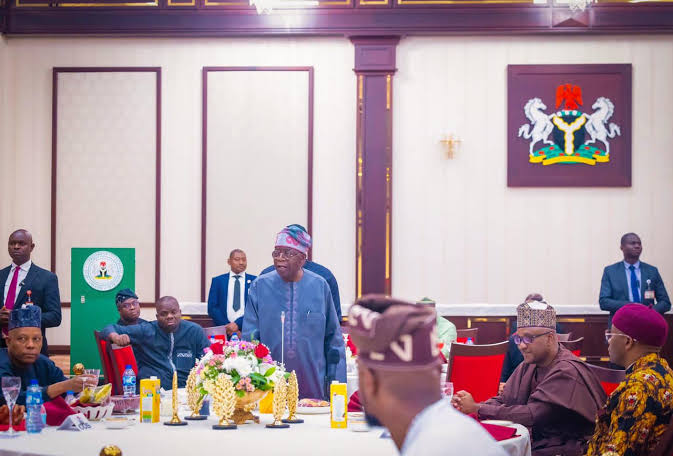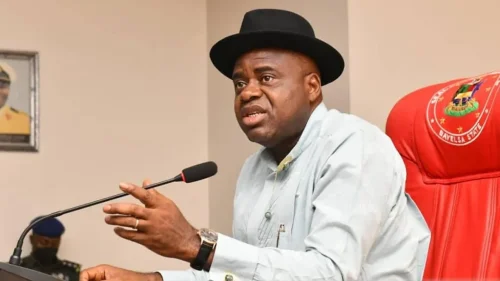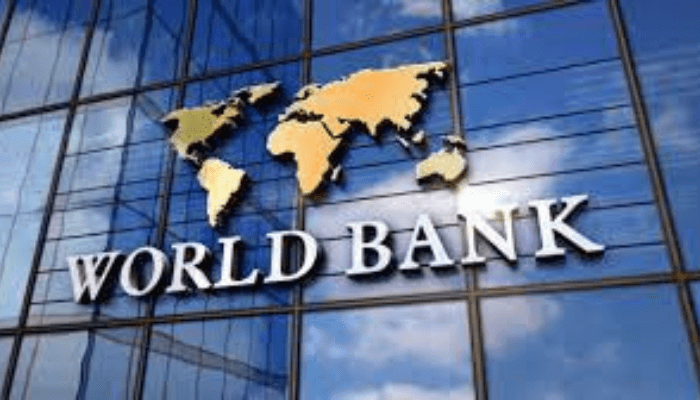Institutionalize anti-corruption compliance systems in states, LGs-ICPC

The Chairman of the Independent Corrupt Practices and Other Related Offences Commission (ICPC), Dr. Musa Adamu Aliyu, SAN, has called on State Commissioners of Information and media leaders across the country to support the institutionalization of anti-corruption compliance systems at state and local government levels.
Dr. Aliyu made this call in Abuja on Wednesday during a One-Day Roundtable Engagement on “Setting for Strategic Integration of State Commissioners of Information in the Fight against Corruption.”
The event, themed “Partnership for Strengthening Transparency and Accountability at State and Local Government Levels Through Strategic Communication,” brought together Commissioners of Information from across Nigeria to explore ways of deepening anti-corruption communication and reforms.
According to Dr. Aliyu, state and local governments remain the most critical battlegrounds in the fight against corruption, being closest to the people and where mismanagement of resources has the most devastating impact on communities.
“Transparency and accountability are democratic imperatives. “I call on Honourable Commissioners of Information and media leaders here today to support institutionalizing anti-corruption compliance systems in states and councils, partner with ICPC in public engagement campaigns, and ensure that ethical re-orientation messages reach the grassroots.”, Dr. Aliyu declared.
The ICPC Chairman, who emphasized that transparency builds trust between governments and citizens, while accountability sustains it, highlighted ICPC’s interventions aligned with the National Anti-Corruption Strategy (NACS 2022–2026), including the Accountability and Corruption Prevention Programme for Local Governments (ACPP-LG), the Constituency and Executive Project Tracking Initiative, and the National Ethics and Integrity Policy.
He further urged state and local governments to proactively disclose budgets, procurement details, and projects, while engaging citizens through town halls and e-governance platforms. Dr. Aliyu assured participants of ICPC’s support in technical assistance, capacity building, and monitoring.
“The journey ahead is a marathon, not a sprint. By embedding anti-corruption compliance and ethical orientation into governance systems, we can build a Nigeria where integrity thrives, transparency is the norm, and accountability becomes a culture,” he concluded.
Delivering the keynote address, Professor Abdalla Uba Adamu of Bayero University, Kano, stressed the importance of communication in tackling corruption.
“The fight against corruption is not merely a question of law enforcement or rules. It is also a battle over perceptions, trust, and credibility,” he noted, warning that secrecy and information hoarding only fuel corruption.
He emphasized that communication should not be reduced to press releases or reactions to scandals but must be a “deliberate, planned, and sustained process of engagement that fosters trust and reinforces integrity.”
Professor Adamu identified awareness creation, legitimacy building, collective mobilization, and cultural transformation as key outcomes of strategic communication. He argued that societies must move from celebrating ill-gotten wealth to valorizing honesty, stressing that communication can reshape societal norms.
“Strategic communication must always rest on three pillars: truthfulness, consistency, and inclusivity,” he said, cautioning against weak partnerships and insincerity that could undermine anti-corruption efforts.
In his goodwill message, the Minister of Information and National Orientation, Mr. Mohammed Idris Malagi, commended ICPC for its innovative approach to grassroots-focused anti-corruption communication.
The Minister reaffirmed the Federal Government’s commitment to strengthening anti-corruption agencies and maintaining a policy of non-interference in their operations.
Also speaking, the Special Adviser to the President Bola Ahmed Tinubu on Media and Public Communications, Mr. Sunday Dare, praised ICPC for cascading anti-corruption messages to the grassroots.
Mr. Dare charged the Commissioners of Information to ensure that the activities of their principals are not only well communicated but also impactful, stressing the role of strategic information dissemination in combating corruption.










